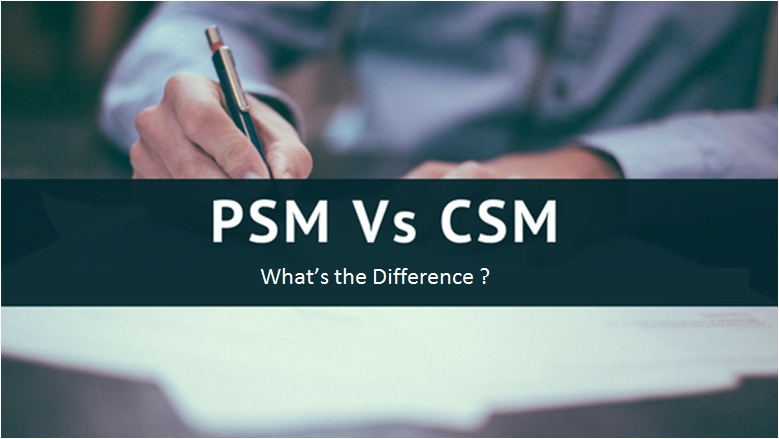If you’re considering working or looking for potential advancement opportunities in the IT world, you’ll need to have the right certifications under your belt. More and more businesses that utilize Information Technology look for candidates that have knowledge of Scrum and its framework as well as any relevant applications.
What is Scrum?
Scrum is a framework that professionals use to get complex projects and tasks completed. While it is most often applied to software development enterprises, it can also be used outside of IT and helps businesses make decisions in a quicker manner using the fundamentals of agile methodology.
CSM vs. PSM
There are several reasons learning about agile implementation as well as scrum set candidates ahead of others, including the fact that demand for individuals certified in either CSM or PSM is rising. They both have a focus on developing software, though they are different in numerous ways and your career path can be altered by the simple choice of taking either the PSM I Exam or the CSM I Exam. To help you along your career path, let’s look at the difference between CSM, Certified Scrum Master, and PSM, Professional Scrum Master, certifications.

CSM
When becoming certified in CSM, individuals will learn how to apply their knowledge to situations outside the realm of IT. You can choose which institute you attend to become certified and will need to attend at least two training sessions each week. You only have two chances to pass the exam, but you’ll be pleased to know that there is no time limit to complete the exam, so you can take all the time you need. Certifications last for two years, so you’ll need to renew your certification regularly.
PSM
The path becoming a professional scrum manager is similar to certified scrum managers, though they are affiliated with differing organizations. Professional Scrum Master I v1.0 PSM Iexam certifications are done through Scrum.org and do not expire, so you don’t have to worry about getting recertified once you’ve taken and passed the exam. You can also complete all required training online, so there’s no need to attend physical classes. The organization was founded in order to further improve the knowledge of professionals and go in-depth on using Scrum in advanced applications.
How to Pass the PSM & CSM Certification Exam?
If you’re interested in becoming a certified Professional Scrum Master, you will need to go through the process of enrolling in a certification course or studying using relevant and verified materials that have been assessed by experts in the IT field. Individuals will need at least an 85% to pass and have 60 minutes to answer 80 questions. Questions consist of multiple choice, multiple answer, and true/false questions.
Passing the CSM exam and becoming a Certified Scrum Master requires attending at least two training classes before taking the test, which requires a minimum score of 69% to pass. Professionals do not have a time limit, so you are able to take as long as needed on the exam’s numerous multiple-choice questions.
Now that you know the difference between PSM and CSM, you can make an informed decision about your IT career path.












